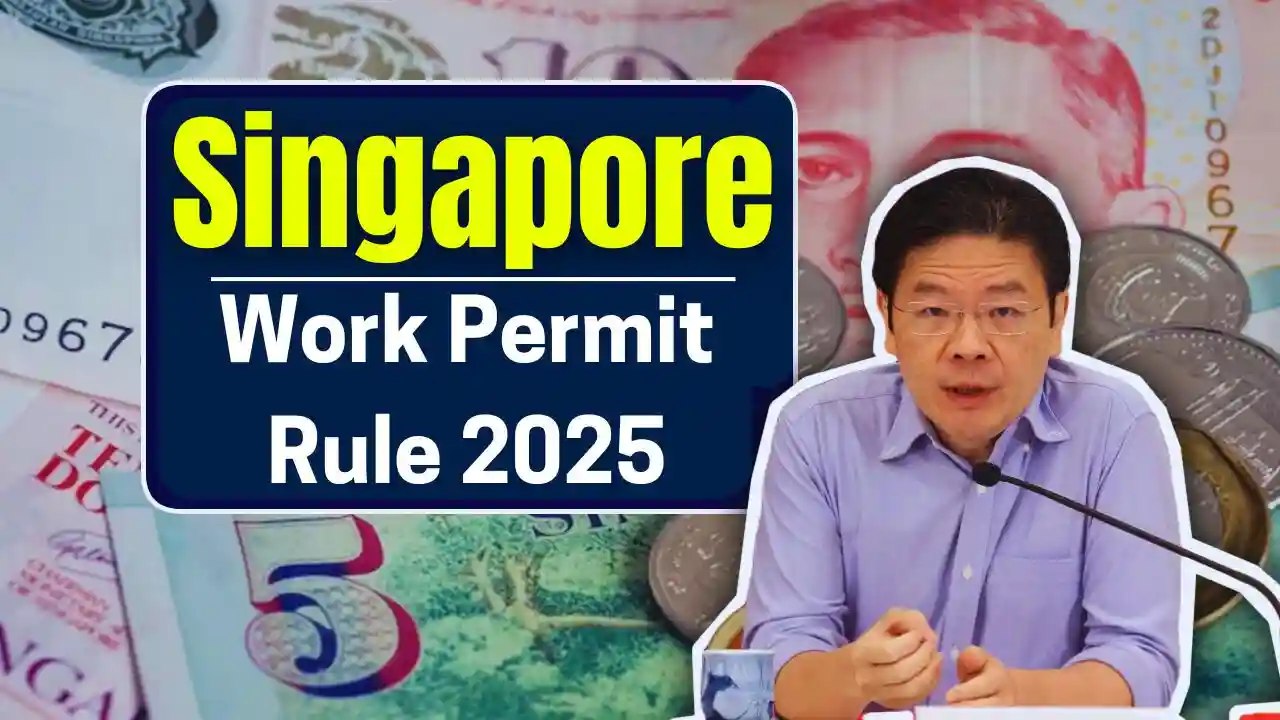The revised work permit rules for 2025 come from the government of Singapore to attract and retain foreign talent and give a balanced workforce in the picture. Singapore is known as one of the world’s most prominent financial and business hubs, so it is still an ideal location for professionals who want to grab up great career opportunities.
The aims of the reformed work permit policies are streamlining the application procedure for increased salary thresholds and providing better retention schemes to aid in economic growth and workforce development.
Revised Work Permit Criteria for the Year 2025
The stricter eligibility criteria raised is for foreign workers but maintaining a steady flow of skilled personnel into key industries. The minimum salary requirement for Employment Pass (EP) has increased to ensure that only high-skilled entrants enter the economy and into the country under an S Pass, salary thresholds amended to make it appealing for mid-skilled to enter and to promote fair employment practices. The changes entail Singapore’s long-term plan, which will thus see quite a highly competitive labor force.
Further Improvements in Retention and Pathways to Permanent Residency
The government is instituting new benefits on retention measures in an effort to keep skilled migrants in Singapore for most of their work period. Extended visa validity as well as renewed processes are to be made easier for those foreign workers highly valued by their industries.
The new framework also improves retention pathways for the qualified towards permanent residence thereby easing the transition for the foreign talent within the Singaporean environment. The government makes sure to strengthen its talent pool and increase productivity by incorporating better career stability.
Workforce Policies Specific to Sector
Specific targeted work permit policies will be under the new schemes for certain industries: technology, health, finance. They have been identified as priorities for the economy of Singapore, therefore subject to relaxed quotas by the government for companies hiring specialized foreign professionals.
Employers will reap the benefits of streamlined business process outsourcing as well as incentives for local and foreign employees in training. The sector-specific approach keeps Singapore competitive in attracting global top-tier talents.
Conclusion
The changes that mark the new work permit rules speak volumes about Singapore’s increased investment in foreign professionals in today’s world while conserving a fair and balanced market.
The adjustments are intended to grant better potential opportunities to Singapore as a global employment hub, such as improving residency pathways and sector-specific incentives with higher salary thresholds.
All foreign professionals wishing to work in Singapore will have to stay tuned to be updated about these developments in order to avail of new opportunities.



